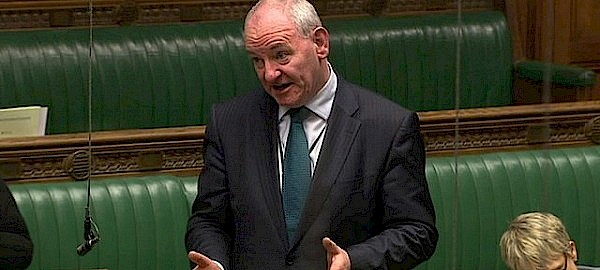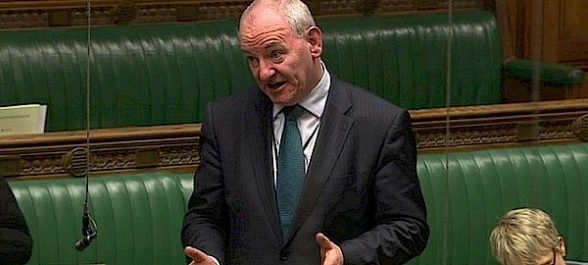 SDLP Foyle MP Mark Durkan has raised the serious concerns of people in Derry over the proposed Transatlantic Trade and Investment Partnership (TTIP).
SDLP Foyle MP Mark Durkan has raised the serious concerns of people in Derry over the proposed Transatlantic Trade and Investment Partnership (TTIP).
It would open up Europe’s public health, education and water services to US companies – and potentially lead to privatisation of the NHS.
The Foyle MP has consistently registered his strong misgivings about the emerging treaty in motions, debates and votes in Parliament.
Speaking during a House of Commons debate on TTIP, Mr Durkan said:
“I have heard many concerns expressed by many constituents (in Derry) in relation to this issue at a number of levels.
“They do not come at it with an anti-American point of view. My constituency enjoys significant US corporate investment – would that we had more – and many people are employed by firms that are US-based or were US-based but now have a more global formation.
“The city of Derry has long been key to the transatlantic partnership.
“It was a key transatlantic port for many years, and even during the Second World War. As Base One Europe, the Americans’ first base in Europe in the Second World War was in Derry. In fact, they started building it six months before Pearl Harbour.
“My constituency gives such transatlantic relationships a very positive embrace. We are not against anything transatlantic, we are not against trade, we are not against investment and we are not against partnership, but people have a right to be concerned about what has been proposed and to make sure that parliamentarians will do due diligence and give due scrutiny to what is involved, because the potential is significant.
“I do not dispute that some aspects of TTIP are potentially very positive. I have listened to the arguments that some hon. Members have made in offering assurances about what this trade deal actually represents. However, they too must listen to people’s serious and genuine concerns.
“We have to make sure that we are not creating, in the name of all the good we want to happen in relation to trade and investment, any new constructs that are beyond accountability, meaning that we end up with transnational capital having more legal clout than the parliamentary systems of democratic states in determining public policy and national law.
“We must come up with a system that actually works in all terms: yes, one that provides free trade, open trade and fair trade, but also one that protects public services.
“The fundamental misgivings that people have about TTIP need to be addressed now through proper scrutiny.”






